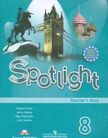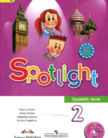New Zealand
New
Zealand is an island country in the Southwest Pacific Ocean. It lies about 1
600 km southeast of Australia and about 10 500 km southwest of California. New
Zealand belongs to a large island group called
Polynesia. It consists of two main islands (North Island and South Island)
and some smaller ones.
Wellington
is the capital of New Zealand. It is a financial centre too. There are
some educational and cultural institutions in Wellington. They are the
University of New Zealand, Victoria University College and others. The
city was founded in 1840 and has been the capital since 1865.
One of the most important city and the largest port in North Island is
Auckland. Christchurch and Dunedin are the most important towns in
South Island. New Zealand is sometimes called "The Britain of the
Pacific", because the cities and towns of the country resemble very
much those of England.
The country once belonged to the British
Empire. Today it is an independent member of the Commonwealth of
Nations, an association of Britain and a number of its former
colonies. New Zealand is a constitutional monarchy with a parliamentary democracy, although its constitution is not codified. Queen Elizabeth II is the Queen of New Zealand and the head of state. She appoints a governor
general to represent her, but the governor general
has little power. The legislation, prime minister, and Cabinet run
the national government.
The
first people who settled in New Zealand were a brown
skinned people called Maoris. They came from Polynesian islands
located northeast of New Zealand. The country was discovered by Europeans in
1642, but they did not start to settle in the islands until
the late 1700's. Today, most New Zealanders are descendants of
the early European settlers. Maoris make up about 12% of the country's
population. They are famous for their folk-songs, music and dances; they
are very skilled in wood-work.
English is the predominant language in New Zealand, spoken
by 98 percent of the population. After the Second World War, Māori were
discouraged from speaking their own language in schools and workplaces
and it existed as a community language only in a few remote areas.
There are now Māori language immersion schools and two Māori Television channels.
Most of the
major sporting codes played in New Zealand have English origins. Golf, netball,
tennis and cricket are the four top participatory sports, soccer is the most
popular among young people and rugby union attracts the most spectators.
New
Zealand has a mild and temperate climate. New Zealand's
climate with rainfalls all the year round, is very favourable for dairying,
sheep-farming and cattle-farming, as well as growing fruit, vegetables and
flowers.
There are
many mountains in New Zealand. The highest is Mount Cook. There are many rivers
and lakes in the country. The chief rivers are the Waikato and the Wairu. You
have heard about the native animals in the country. One of them is the kiwi.
This interesting bird lives in the wet parts of the thick bushes.
In the day-time the bird does not go out. It comes out only at night to find
food. Kiwis cannot fly. Many years ago kiwis were hunted for food. Now the
government does not permit the hunting the kiwis. The kiwi is
now the symbol of New Zealand people. Small children are often called kiwis.
New Zealand has got heavy industry. There are many plants in the country.
Paper and rubber industries are developed too. New Zealand exports wool, meat,
butter. New Zealand has one of the highest standard of living in the
world.
Vocabulary:
to belong
- принадлежать
was founded
- был основан
"The
Britain of the Pacific" - "Великобритания Тихого океана"
resemble - напомнить
British Empire - Британская
империя
the
Commonwealth of Nations - Содружество Стран
is not codified - не кодифицирован
to appoint
- назначить
governor
general - генерал-губернатор
to represent
- представлять
legislation
- законодательство
brown skinned
people - темнокожий народ
to settle
- обосноваться
former
colonies - бывшие колонии
descendants
- потомки
predominant
language - преобладающий язык
were
discouraged - были обескуражены
remote areas
- отдалённые районы
immersion
schools - школы языкового погружения
spectators
- зрители
mild and
temperate - мягкий и умеренный
rainfalls - ливни
favourable - благоприятный
dairying - производство
молочных продуктов
sheep-farming -
овцеводство
cattle-farming -
разведение крупнорогатого скота
thick bushes - густые
кустарники
does not permit - не
разрешается
Задание 1. Answer the questions.
1. Where is
New Zealand situated?
2. What city is the capital of New Zealand?
3. What languages do people in New Zealand speak?
4. What is
the official language in New Zealand?
5. Who is New Zealand's head of the state?
6. Who runs the national government?
7. Who were the first people to live in New Zealand?
8. What are the main industries of the country?
9. What’s the
nation symbol of New Zealand?
10. How are
small children often called?
11. What
kinds of sport are popular in this country?
12. Today New Zealand is an
independent member of the Commonwealth of Nations, isn’t it?
Задание 2. Translate the words and words combinations into
English.
1. It consists of two main islands………………. (Северный остров и Остров Южный и некоторых
поменьше).
2. There are some……………. ( образовательные
и культурные учреждения) in Wellington.
3. The city…………. (был основан в 1840).
4. (Одним из самых важных городов на Северном
острове) ………….. is Auckland.
5. (Новую Зеландию иногда называют) ……….. "The Britain of the Pacific".
6. New Zealand is ……………
(конституционная монархия с парламентарной демократией).
7. The country ………………… (была открыта
европейцами в 1642).
8. English is …………….. (преобладающий язык
в Новой Зеландии).
9. (Главные реки) ………….. the Waikato and the Wairu.
10. New Zealand has got …………… (тяжелую
промышленность).
11. (Бумажная и резиновая промышленность)
……… are developed too.
12. New Zealand has …………. (один из самых
высоких уровней жизни в мире).
Задание
3. Translate into English.
1. Остров был открыт европейцами в 1642 году.
2. Город был основан в 1840 году.
3. Климат в стране мягкий и умеренный.
4. В течение года там часто идут ливневые дожди.
5. Королева является главой государства.
6. Удивительная птица Киви – это символ страны.
7. Новая Зеландия поставляет шерсть, мясо и масло
другим странам.
8. Футбол очень популярен среди молодежи.
9. Большинство жителей Новой Зеландии являются
потомками европейских первопоселенцев.
10. Столицей государства является Уэллингтон.
Задание 4. Расставь в
правильной последовательности текст, поставь нумерацию к абзацам
A/ . New
Zealand is rich in minerals, but few have been extensively exploited. In the
South Auckland area the iron and steel industry is developed. In 1962, natural
gas and petroleum were discovered in the Taranaki district. Uranium-bearing
minerals are located in the area of the South Island.
B/ . The
majority of the population is of British origin, but there are small groups of
Chinese, Indians, Dutch, Yugoslavs, Greeks, and Poles.
C/ . New
Zealand has an Academy of Sciences. It conducts scientific and technological
research.
D/ . The flag
has two main features: the red, white, and blue Union Jack in the upper left
quarter and the four-star Southern Cross in the right half. On the blue state
flag the stars are red, outlined in white.
E/ .
Two-thirds of the total area of New Zealand is devoted to agriculture and
animal husbandry.
Задание 5. Tell about New Zealand using the chart.
·
Geographical location: … Southwest Pacific Ocean
·
Situation: … the North Island and the South Island
·
Capital: …
·
Total area: … square kilometres.
·
Population: …people.
·
First settlers: …
·
Principal towns: … Auckland, Christchurch, Wellington.
·
Principal industries: … wood and paper products, wool, textile, iron, steel.
·
Head of State … Queen … represented by …
·
Nature: ……
·
National emblems: …
Задание 6. Read the dialogue about educational system in
New Zealand.
Dialogue
Interviewer: Hannah, tell us about the educational
system in New Zealand. For example, how long do students spend in
the system?
Hannah: Oh… a long time! Usually about 17 or 18 years
if they go to university.
Interviewer: When did you start school?
Hannah: At the age of five.
Interviewer: How many years were you at primary school?
Hannah: Five years – from five to ten.
Interviewer: Where did you go after primary school?
Hannah : Well, then I went to an intermediate school,
from ten to twelve. Then at twelve we start at secondary school.
Interviewer: Mmm. When can students leave secondary school?
Hannah: Well, we can leave secondary school at sixteen, but most
students stay till they’re eighteen.
Interviewer: Do a lot of students go on to higher education?
Hannah: Yes, I think about fifty per cent of students go into higher
education – that’s universities, polytechnics, colleges of education…
Interviewer: Which type of institution did you go to?
Hannah: I went to a college of education because I wanted to be a
teacher. I became a primary teacher, so I studied for three years and
finished when I was twenty-two.
Interviewer: Do you have to pay for your higher education studies in New
Zealand?
Hannah: Yes, we have to pay some of the costs, but not all.
Interviewer: How much does a student have to pay?
Hannah: Oh… It can be 2,000 dollars or it can be 20,000.
Interviewer: Well, thank you, Hannah.
Vocabulary:
educational
system – система образования
primary school
- начальная школа
intermediate school - промежуточная школа
secondary school - средняя школа
higher
education - высшее образование
Grammar
work.
Modal verbs.
Модальные глаголы.
Модальные
глаголы выражают не действия, а только отношение к ним со стороны
говорящего. К числу модальных глаголов относятся can (могу,
умею), may (могу, разрешаю), must (должен,
обязан), ought to (должен), shall (должен), should (должен), need (нужно), have to (вынужден).
Особенности
модальных глаголов:
1. У них отсутствует ряд грамматических форм,
например: они не имеют суффикса -s в 3-м лице единственного
числа настоящего времени; у них нет инфинитива, окончания -ing и
причастия; у некоторых из них нет формы прошедшего времени (must, should, ought, need).
2. Инфинитив смыслового глагола употребляется без
частицы to после всех модальных глаголов, кроме ought, to
have и to be.
3. Вопросительные и отрицательные формы предложений,
в которых имеются модальные глаголы, строятся без вспомогательного
глагола do, за исключением глагола to have.
Задание 1.
Translate the sentences.
1. What can I do for you?
2. You may come in.
3. You must watch this film. It’s very interesting.
4. He must be ill, he looks so pale.
5. I have to go there every day.
6. You ought to help your friend.
7. Shall I read it again?
8. He shouldn’t do it without his brother’s permission.
9. How should I know?
10. Need I repeat it?
Задание 2. Complete the sentences using can, can’t, may,
must, need, should, have to.
1. Sandra …….. drive but she hasn’t got a car.
2. You’ve been travelling all day. You ……be very tired.
3. They haven’t lived here very long. They …… know many people.
4. …… I open the window? It’s very hot.
5. I …… get up early tomorrow.
6. I think she….. go away for a few days.
7. I don’t think we……. Continue the conversation.
Задание
3. Translate into English.
1. Ты можешь перевести этот текст?
2. В комнате темно, я не могу найти свои вещи.
3. Они должны вернуть все деньги.
4. Ты можешь делать все, что хочешь.
5. Мне пришлось уйти рано с работы.
6. Я прошу прощения. Мне не следовало этого
говорить.
7. Не стоит задавать таких вопросов.
8. Он обязан это знать.
9. Новость может напугать её.
10. Мне можно идти?
11. Я был вынужден вернуться.
12. Тебе надо навестить брата в больнице.








Оставьте свой комментарий
Авторизуйтесь, чтобы задавать вопросы.